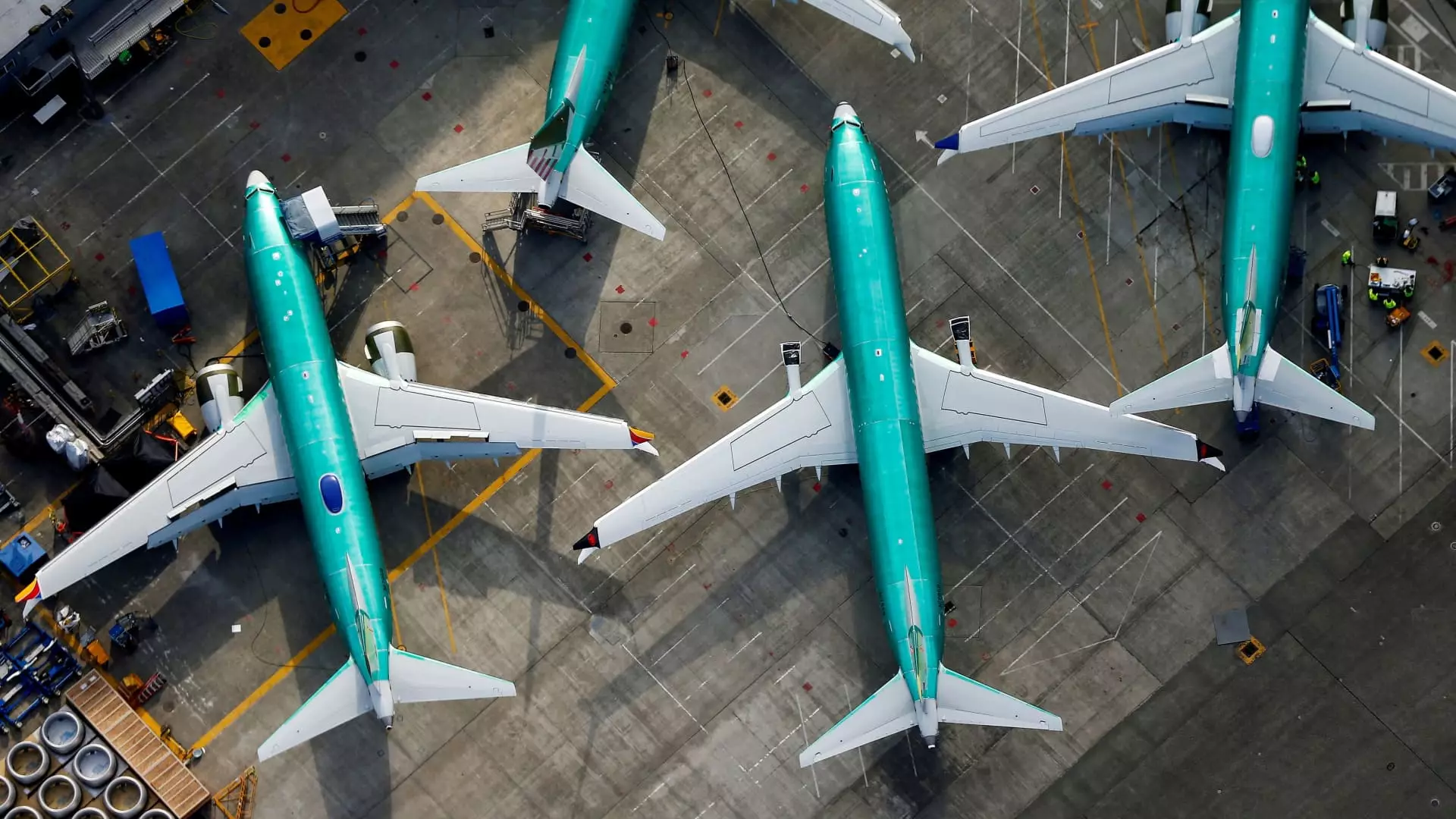Boeing’s recent Max crisis is causing some of its major customers to rethink their growth strategies for the upcoming year and possibly beyond. The ongoing quality control issues, slow production increase, and delayed certification of new aircraft are all contributing to the decision-making process of airline CEOs.
Southwest Airlines, a loyal customer of Boeing with a fleet consisting solely of 737s, has adjusted its 2024 capacity forecast due to a reduction in expected Boeing deliveries. The initial estimate of 79 Boeing 737 Max planes has been revised down to 46, prompting a reevaluation of their financial guidance for the year. Southwest Airlines CEO Bob Jordan emphasized the need for Boeing to enhance its operations in order for deliveries to improve.
Alaska Airlines is facing a similar dilemma, with a fluctuating 2024 capacity estimate due to uncertainty surrounding the timing of aircraft deliveries. The increased scrutiny from the Federal Aviation Administration (FAA) and Department of Justice on Boeing’s operations has added an additional layer of complexity to the situation.
United Airlines CEO Scott Kirby expressed frustration at the delays caused by the certification process, particularly regarding the Max 10 planes. In response, United Airlines has requested Boeing to focus on producing more Max 9s instead, as they are already operational. Kirby acknowledged the challenges in predicting the certification timeline for the Max 10 and made the decision to exclude it from the airline’s fleet plan back in January.
The most recent crisis involving a door panel detachment during an Alaska Airlines flight has intensified the scrutiny on Boeing’s manufacturing practices. A preliminary investigation revealed that bolts on the door panel were not properly secured when the planes left the factory, leading to concerns about quality control within Boeing’s production system.
Boeing has responded by emphasizing its commitment to enhancing quality control measures and ensuring compliance with regulatory requirements. The company has initiated work pauses to address issues with workers and has implemented weekly compliance checks to prevent similar incidents in the future. Boeing’s leadership, including CEO Dave Calhoun, has vowed to eliminate manufacturing deficiencies and improve overall product quality.
The FAA has intervened by halting Boeing’s planned output increases and identifying non-compliance issues in the manufacturing process. The audit highlighted concerns related to parts handling, storage, and product control, prompting Boeing to reassess its production practices.
Boeing’s commercial airplanes’ unit CEO, Stan Deal, has reassured employees of the company’s commitment to addressing compliance issues and conducting regular audits to maintain quality standards. The ongoing collaboration with regulatory authorities and customers reflects Boeing’s efforts to regain trust and ensure the safe operation of its aircraft.
Boeing’s latest Max crisis has had a profound impact on airline growth plans, leading to reevaluations, uncertainty, and increased scrutiny on manufacturing practices. The ongoing efforts to address quality control issues and improve production processes are crucial steps in restoring confidence among customers and regulatory agencies.


Leave a Reply